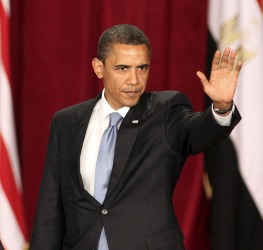I’ve never been entirely comfortable with Christmas theologically. It’s a bit saccharine for my tastes. I prefer the parables and the passion narratives for their twists and unexpected inversions. And I’ve always liked the Moses and David cycles in the Hebrew Bible for their frank depictions of human foibles and failings. The Christmas stories in the Gospels just left me uninspired. Baby Jesus is too quiet, too cuddly, and too likable. (Frankly Mary and Joseph shouldn’t count as real parents if what the song says is true: “no crying he makes!”) Where is the existential angst, the challenge to received wisdom, and the startling reversals that make the mature Jesus such a pain in the side of the authorities? I’ve had a hard time over the years finding enough meat in the Christmas stories to sink my teeth into. Well, not this year, and my redemption came from an unexpected place: the Bishop of Rome.
Let me elaborate. I don’t go in much for Vatican politics or pope watching. We have many dear Catholic friends who work at Roman Catholic universities so their lives are deeply affected by papal policy, and we have a few relatives who are practicing Catholics of various levels of commitment. Some of them find the pope a person of inspiration and a figure of central religious significance. Others of them pay the pope only the minutest amount of attention and treat him a bit like a monarchical figurehead. So my interest in papal actions is marginal. However, for better or for worse, the pope is the most recognizable Christian figure across the world, and for this reason if for no other, his actions redound to all Christians everywhere, even LEs. So it is also relevant to note that the pope is a politician and a head of state (Vatican City) even as he is the leader of a huge communion of Christians. Just as President Obama is the public face of Americans, whether all Americans like it or not, the Bishop of Rome is the public face of all Christians while being at the same time a politician with all that that entails. This situation seems ripe for abuse and scandal, and yet . . .
Let’s pause the Pope-talk for a moment and reconsider the Christmas stories, especially the version told by Matthew. Astute observers have for centuries noted that this version of Jesus’ birth is designed to portray him as an analogue to Moses, the long awaited redeemer of his people, surrounded by supernatural omens and chased by powerful kings even to the point of attempted genocide. The story of Herod paints a picture of a Hitleresque figure, wiping out whole populations in his demonic obsession. But at the risk of soft-pedaling his orders to wipe out the children, I think that viewing him in some historical context might be helpful.
Now please, don’t get me wrong, this not an attempt to whitewash Herod and rehabilitate his image, but I do find it helpful to consider his actions in Matthew in the ancient context, a context in which armies routinely put entire cities to the sword by killing all the inhabitants and saving only those fit for slavery. In Herod’s world slavery was very much the norm and crucifixion was NOT the worst imaginable form of execution. I don’t read Herod so much as the bloodthirsty tyrant or genocidal maniac. I see him as less Hitler and more today’s standard issue cynical politician–that is if we consider the context of the story. As a politician of his day he seems entirely ordinary in his willingness to do whatever was necessary in order to suppress a rival, and that’s what Jesus potentially was to him, a rival for power. What I find chilling about Herod is not the ease with which he orders the slaughter of the innocents, but rather the practiced cynicism of his professed desire for news of the messiah “so that I too may go an worship him.”
As a modern voter and consumer of political and religious journalism, that line from Herod strikes me as all too familiar. Here we have a politician doing what so many others do routinely; offering to cozy up to the wounded soldier, the emergency first responders, the cancer stricken child, the grieving widow, or the championship sports team. Herod wants the photo-op and the good press, even as he plans the demise of the child. Like a congressman who champions a bill publicly for the press, but then blocks it privately for the campaign donations, Herod seems to want to work both sides of the street. Always eager for any edge or angle that might advance his career and image, always willing to sacrifice a few lives for more job security, Herod is the consummate politician. So it is his cynicism, more than his barbarism that jumps out at me as I read the story again in our twenty-first century context.
And this is what brings me back to the Bishop of Rome. I, of course, cannot see into a person’s heart so there is no way for me to know just how genuine the man’s actions and feelings were. But when the pope blessed this man (at least according to the European press, a press core full of cynical and hardened journalists, used to sniffing out scandal) his actions seemed sincere enough to cause several commentators and news outlets to pause momentarily and reconsider the pope’s role in European political and cultural circles. For too long, perhaps, they had thought of the Bishop of Rome as merely a politician and institutional leader. But in bowing to kiss this disfigured man, the pope seemed to rise above the other leaders of the continent and demonstrate a real love that few other politicians would likely be able to muster. Was his concern authentic or were his actions rehearsed and packaged for press consumption? We’ll never know, but I choose to see this simple gesture as an act of genuine compassion and love, of fellow feeling with a wounded child of God. To do otherwise just seems too cynical, and I don’t much want to go down the Herod path, especially not this time of year.
A blessed Advent to all LiberalEvangelicals out there, and I wish you a cynicism free Christmas season.


